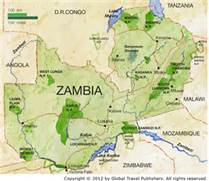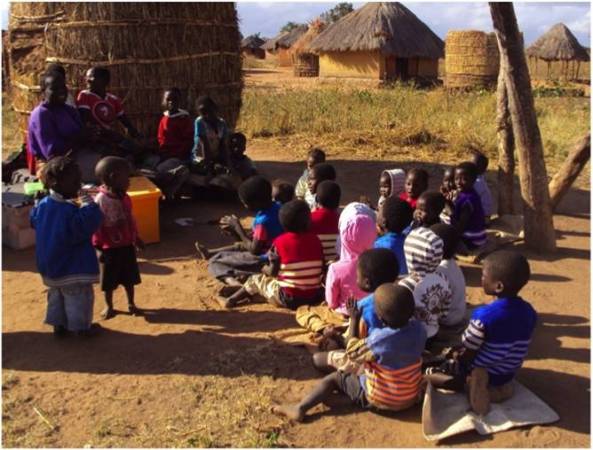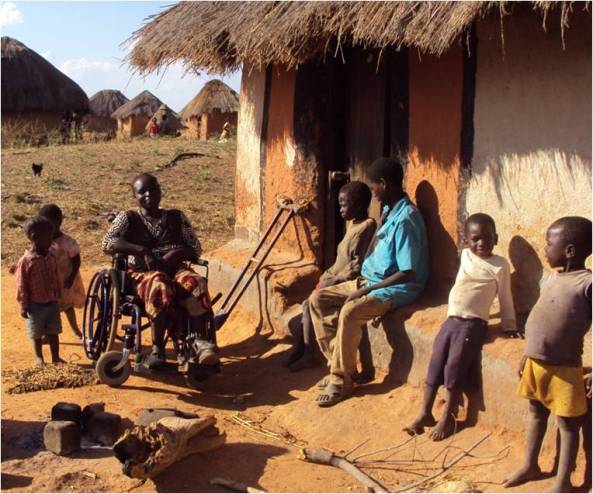In a small, African village, an elderly woman eagerly tells a Bible story to a group of young onlookers. It is a new morning in Zambia and preschool is beginning.
But this elderly school teacher has not always had smiling faces to look upon.
Her nation, Zambia, in southeast Africa, is set on a plateau with 70 percent of the population living in extreme poverty.

Zambia
In Zambia, HIV/AIDS is rampant and the life expectancy is only about 40 years. Additionally, 30 percent of the population is illiterate, and many children grow up never having the opportunity to go to school.
As a resident of a rural Zambian village, life is difficult for this elderly lady known as Mama Ester. A disability causes her to use a crutch and she often has to sit in a wheelchair.
However, three years ago, hope came to Ester in the form of a missionary who befriended her. When she realized that Ester was one of the few people in the village who could read, the missionary encouraged Ester to begin a preschool for the young children of the village.
With nothing but a box of preschool material, Ester did not have much to work with, but she accepted the challenge and began teaching a group of young children.
Using an old truck tire as a school house, Mama Ester gathers the children every morning and begins by telling them a Bible story. Then, she divides the children into four groups where they can receive some teaching, read books, make crafts, or play with toys. At the end, each child gets to sit with Mama Ester on the tire and talk with her. Throughout the morning, each group rotates stations, and every child has the opportunity to learn, laugh, and be loved.
Mama Ester’s work is thriving in her community, and the leaders are taking notice. The matriarch of the village, upon visiting Ester’s makeshift school, was shocked to find that these young scholars could read better than her grandchild who had been educated in a government school.
Today, Mama Ester’s ministry has grown, and she now is teaching many of the village cattle herders to read. Before they head out to work each morning, many of these farmers visit Ester to receive the education they never had before. Ester is also training new teachers who are reaching out to the surrounding villages with the love of Christ and the gift of education.
Ester’s ministry is not complicated, expensive, or extraordinary. But by using the resources she had — which happened to be her mind, an old truck tire, and a box of preschool material — Ester seized the opportunity and plated seeds of love in her community.
The Disciple Nations Alliance seeks to raise up leaders just like Mama Ester. By teaching people how to reach out to their communities with the resources they have, the DNA seeks to bring God’s kingdom to the nations. Although Ester has never heard of the DNA, she is a living testimony of how the work of one faithful believer can bring transformation.
This story was shared by Johannes Aucamp, a DNA trainer who serves and trains African pastors, helping them develop into Christ-like servant leaders who bring transformation and glory to God in their communities. He works as part of Training of Pastors in Africa (TOPIA). E-mail him at johannes@topia.org.za, and follow TOPIA on Facebook and Twitter (@TopiaMinistries)!




















